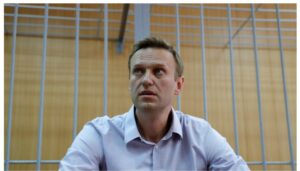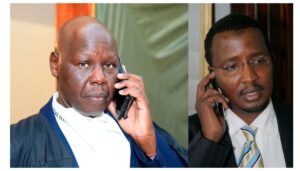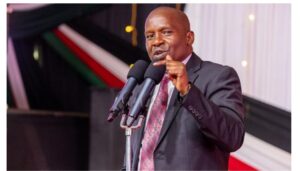African countries that still pay ‘colonial tax’ to former colonisers

The practice of colonial tax continues to affect several African countries, primarily former French colonies, despite the end of formal colonial rule decades ago
The practice of colonial tax continues to affect several African countries, primarily former French colonies, despite the end of formal colonial rule decades ago.
This system, often referred to as a “colonial tax,” involves these countries sending a significant portion of their income back to France, a legacy of agreements made at the time of independence.
The colonial tax system allows France to claim up to 85% of the annual earnings from these countries.
The mechanism is structured such that these nations must deposit their foreign currency reserves into France’s central bank.
When they need access to these funds, they can only withdraw up to 20% at a time and must often request loans for additional amounts.
This arrangement has been defended by France as compensation for infrastructure and administrative costs incurred during colonial rule; however, critics label it an exploitative practice that undermines true independence and economic growth in Africa.
After granting independence, France sought to ensure that the new leaders aligned with its interests.
Many African leaders were either educated in France or had strong ties to French political systems. This created a network of elites who were more inclined to prioritise French interests over national sovereignty.
Notably, France often intervened directly in political matters, supporting regimes that adhered to its policies and undermining those that sought greater autonomy.
For instance, when Guinea attempted to break away from French influence by establishing its own currency, France retaliated with economic sabotage and destabilisation efforts, sending a clear warning to other nations about the consequences of defying French interests.
France’s economic dominance is primarily exercised through the CFA franc, a currency used by many former colonies that is pegged to the euro.
This arrangement ensures that these countries must deposit a significant portion of their foreign reserves in France, limiting their financial independence and perpetuating a cycle of economic dependency.
Gachagua allies issue demands after release of abducted Kenyans
TSC responds to reports of stopping sacco deductions from teachers’ salaries
Government to assist 2m top Hustler Fund borrowers access commercial bank loans
Governor Natembeya claims of a plan to impeach him
NSE lifts suspension on trading of KQ shares
Canadian Prime Minister Justin Trudeau resigns
Critics argue that this monetary system is inherently exploitative, as it keeps African economies tethered to French financial interests and hinders their ability to develop robust local economies.
Military Presenc
France has maintained a military presence in several African nations under the guise of security cooperation agreements.
These agreements allow for French troops to be stationed in countries like Chad and Gabon, ostensibly for peacekeeping and counter-terrorism efforts.
However, this military presence often serves as a means for France to intervene in local conflicts and support friendly regimes, reinforcing its influence while undermining the sovereignty of these nations.
Culturally, France has exerted influence through language and education.
The promotion of the French language and cultural ties via organisations like Francophonie ensures continued dependency on French cultural norms and practices.
Educational systems in many African countries still reflect colonial legacies, further entrenching France’s soft power in the region.
Chad
Benin
Côte d’Ivoire
Guinea
Mali
Niger
Senegal
Togo
Cameroon
Also read,
Ministry of Health issues advisory over flu-like illness linked to HMPV
Someone is playing a game; UDA MP says over abductions
Uganda’s chief of defense forces Muhoozi threatens to behead Bobi Wine
Kibet Bull vows to reduce social media activity after abduction
KHRC wants Kindiki, Murkomen, Ichung’wah and 4 others to resign
Follow us





